For 45 years, this writer has thought about the involvement of the United States in Vietnam from 1964-1973. Claims that the United States lost the war in Vietnam never seemed to ring true based on the evidence. Even though many may claim the point is moot after so many years, it is important to the military. In the final analysis, militaries have one overriding concern when their effectiveness is measured - the scorecard. An accurate record of wartime wins and losses is very significant to any military history. As Sun Tzu says in his seminal work, the Art of War, "The art of war is of vital importance to the State. It is a matter of life and death, a road either to safety or to ruin. Hence it is a subject of inquiry which can on no account be neglected.” As a matter of life and death, the scorecard should be accurate and complete.

Who Won the Vietnam War?
by john111
President Dwight Eisenhower's domino theory in Southeast Asia was the predominant view of the challenge of communism. The Vietnam conflict was predicated on stopping North Vietnam.
Ho Chi Minh Trail 1967
Map
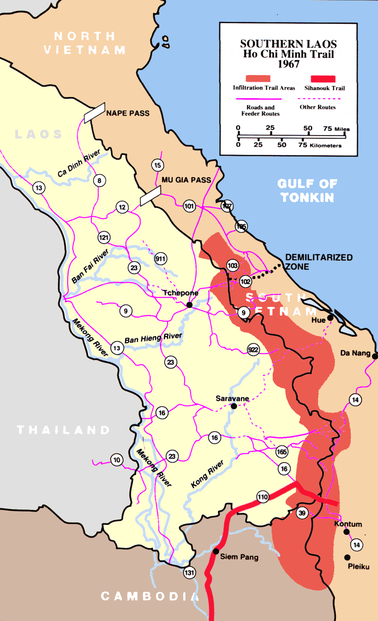 Ho Chi Minh Trail 1967 |
Three Preconditions for Military Victory
What's The Verdict in Vietnam 1973
This article will look at three elements contained in various definitions of winning militarily. The first element under consideration will be whether the United States defeated North Vietnam militarily.
One measure of winning can be looked at as the number of victims in each military. The difference between war of attrition and other forms of war is somewhat artificial, since war always contains an element of attrition. Attrition warfare is a military strategy consisting of belligerent attempts to win a war by wearing down the enemy to the point of collapse through continuous losses in personnel and material.
United States Losses:
58,209 Killed in Action (KIA) and other dead
303,635 Wounded in action (WIA) (including 153,303 who required hospitalization and 150,332 who didn't)
1,948 Missing in Action (MIA)
South Vietnames losses are 300,000 soldiers killed
North Vietnamese Losses:
The North Vietnamese government reported 1,100,000 military personnel killed during the war and 600,000 wounded
President Richard Nixon put into play Operation Linebacker II. This was a massive bombing of Hanoi and Haiphong 18–29 December 1972. The offensive destroyed much of the remaining economic and industrial capacity of North Vietnam.
On the basis of body count and destroyed industrial capacity, and the fact that few observers deny that this brought the North Vietnamese to the bargaining table, it appears in terms of attrition, the United States defeated North Vietnam militarily.
A Second Measure
Peace Treaty Conditions
Another measure of whether the United States won or lost the conflict in Vietnam is whether North Vietnam's violation of the Paris Peace Accords constitutes a victory by North Vietnam.
The accords are officially titled the Agreement on Ending the War and Restoring Peace in Vietnam in 1975. It was a peace treaty signed on January 27, 1973, and it contained two chief provisions.
Provisions:
- Reunification of Vietnam was to be "carried out step by step through peaceful means".
- If South Vietnam required any military hardware to defend itself against any North Vietnam aggression, the United States agreed to provide replacement aid to the South Vietnam on a piece-by-piece, one-to-one replacement basis.
Is Breaching a Peace Treaty A Qualification for America Losing a War?
Who Brought Whom to the Peace Table?
On January 8, 1975, the North Vietnamese Politburo ordered the People's Army of Vietnam offensive to "liberate" South Vietnam by a cross-border invasion. The capital of South Vietnam, Saigon, fell on 30 April 1975, a little over 2 years later, after an invasion with 30 divisions.
While it is true that the pledge to support South Vietnam militarily should it be attacked was not fulfilled by the U.S., there is no argument that the North Vietnamese violated the accords. Within 24 hours of signing the accords, our military was deployed home. In consideration of our military stance versus North Vietnam's, the United States provided resources to South Vietnam from 1973 -1975. Our fighting men were not involved after January 28, 1973.
One could argue that by not supplying manpower again to battle the North Vietnamese, the United States lost the war. But given that at the time of this "defeat" there were no American soldiers, airmen, or sailors involved, it seems a stretch. At the time of the Paris Peace Accords, there were signatories (Le Duc Tho and Henry Kissinger) of both countries on paper. At this point, more history is required to strengthen the argument that the United States military did not lose.
Consider World War I. Adolf Hitler invaded France on 10 May 1940 and subsequently defeated it some 22 years after the the Treaty of Versailles (28 June 1919). Does that negate an Allied military victory in 1918, and hence the contribution of the United States Army, Marine Corps, and Navy? Although most historians classify World War I as a military victory for the Allies, the idea of it being a military defeat or even a draw has been discussed by some chroniclers. My impression of such opinions is that they are not held by most in the know; indeed the idea seems repugnant to many.
By December 29, 1973, the North Vietnamese agreed to resume talks. They signed the final Paris Peace Treaty soon afterward, ending the Vietnam War. Differing opinions exist about the “Christmas Bombings” and whether it forced the North Vietnamese back to the negotiating table. National Security Adviser Henry Kissinger reportedly said “We bombed the North Vietnamese into accepting our concessions.” In the north, 29 of the 30 provincial capitals bared heavy bombing damage, one third of them for all practical purposes were destroyed.
Therefore, based on the evidence, as of January 27, 1973, the enemy in North Vietnam was driven to the negotiating table due to overwhelming U.S. military force. Based on the situation on the ground in Vietnam at the time of the Paris Peace Accords, the U.S. military won the war in Vietnam.
Yet Another Measure of Victory
So Who Cares?
Another measure of whether the United States won a military victory in Vietnam is that the economy of Vietnam collapsed by 1977 under an imposed communist economic dogma.
It was the Americans (the military) and the millions in South Vietnam who supported the U.S. war effort who understood free markets. Though there had been corruption in South Vietnam, there was no denying that the economy was much better before North Vietnam's invasion.
On July 2, 1977, the unified Vietnam was officially named the Socialist Republic of Vietnam. It is estimated that 50,000 to 200,000 people died in reeducation camps. Millions of unemployed people suffered due to an end to private trade and commerce. Two million people fled Vietnam from 1975 - 1995. These people are often referred to as boat people.
Land reform failed miserably resulting in production downturns and famine. By 1986, Vietnam's economic policies became increasingly capitalist and market oriented, though tempered by socialist controls. It would be referred to as capitalism with Vietnamese elements. This is short for allowing free enterprise where the government views it as necessary. Government owned business viewed as critical for maintaining power (and lining the pockets of officials) would function alongside.
When an adversary's political dogma is turned upside down due to a military conflict, the whole argument for having started a war (a better, fairer system) is, to put it mildly, flushed. Every year, new Vietnam becomes more capitalist. Indeed, Vietnam's supposed enemy before 1975 had resupplied capital to the country since the 1990's. U.S. Navy warships are today harbored there, not Chinese.
This is one of the more obvious victories of the United States, and by extension the U.S military over North Vietnam - it can be argued that Vietnam today is more capitalist than socialist.
Wounded - 1967
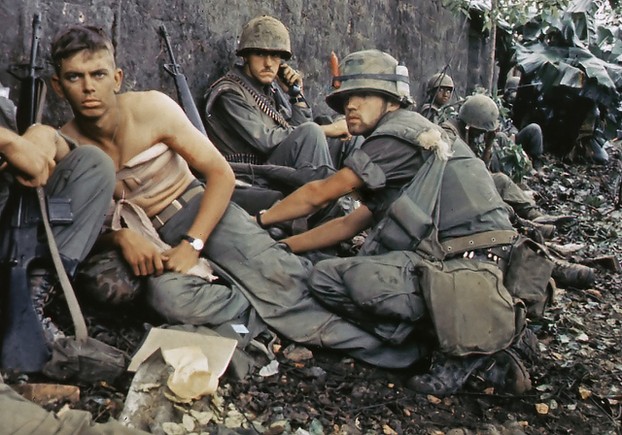 Wounded - 1967 |
An Important Observation Regarding Perception
The position here is not that American liberals and journalists affected the outcome of the war negatively. The student demonstrations, the academic rallies, the political left, and the grieving and vocal parents of conscripted sons and daughters who died all had an impact on the execution and resolution of the war.
But here now is an interesting fact about that "war."
During the interval when the U.S. military was prosecuting the war in Vietnam, many on the left argued that getting out of Vietnam should be easy because it was not a war, it was rather a police action. Somehow the notion that we were in a policing action never quite caught on with the journalists. It was always referred to as a war.
The issue will not be belabored, but it is important for the fighting in Vietnam to be categorized correctly at some point. Choosing the right term is paramount. Ask yourself which is more dramatic and oppressive, the expression Vietnam War or Vietnam Police Action?
"More than ever before, television showed the terrible human suffering and sacrifice of war. Whatever the intention behind such relentless and literal reporting of the war, the result was a serious demoralization of the home front, raising the question whether America would ever again be able to fight an enemy abroad with unity and strength of purpose at home.” – U.S President Richard Nixon on the media coverage during the Vietnam War.
For this reason it is necessary that the United States maintain a voluntary armed force. John McCain, as I understand it, is even against registration for the draft and reinvigorating the machinery of conscription. He is correct. So unbending is the public's intolerance for military conscription.
A Great Deal of Mythology About the Vietnam War
For many reasons, the majority of the public eventually viewed the war in Vietnam negatively. And the public was being blasted with the scourge of war nightly in particular, and in the media generally. Wars are filthy, there can be no doubt. But by emphasizing things that do not relate to victory or defeat of a military, a mythology can evolve. The mythology in this case is that the U.S. military was defeated in Vietnam.The mythology can be so intense that the idea of correcting it or altering it is abhorrent.
Please indulge an analogy which attempts to show how abhorrent the feeling would be about changing the mythology of the United States losing the Vietnam War.
Imagine a detailed expose on the dalliances of Martin Luther King or John F. Kennedy. There is no way of producing a 9 year expose on such dalliances (which is how long the gore and possibly selective reporting of Vietnam entered our homes). But is there any way a media outlet would do an in depth reporting on that subject? One man was a hero for social change, the other a war hero and a hero of a new generation. What would be the feeling of the general public about such an expose or exposes? It seems such an endeavor no matter how accurate would be objectionable. The public's general mythology of near sainthood would persist.
And the general mythology of a U.S. military defeat in Vietnam will continue.
Conclusion
For the sake of the U.S. military and others who look at the subject of the Vietnam War with confusion, it needs to be clearer that Vietnam veterans and the United States military were victorious in Vietnam.
It must be evident at memorials that American servicemen and women won the war in Vietnam, and that those participants were in no way losers. The greatest heroes of the war were those drafted who fought with honor despite any personal doubts or pressures from home.
General Westmoreland
 | Polarized Army Sunglasses Ballistic Military Goggles Men Frame 3/4 Lens Combat War Game Eyeshield... Polarized Army Sunglasses Ballistic Military Goggles Men Frame 3/4 Lens Combat War Game Eyeshields |
You might also like
Icelandic Financial Upturn 2011 - 2017Bankruptcy is a rather common place event in the business world. A country ne...
Short StirlingBuilt by Short brothers, the Stirling was a four engined bomber in use at the...
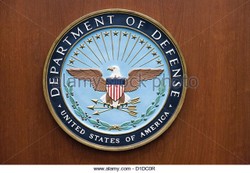

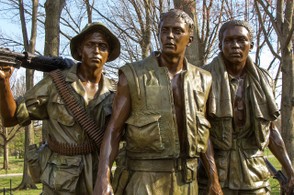
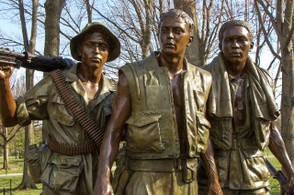
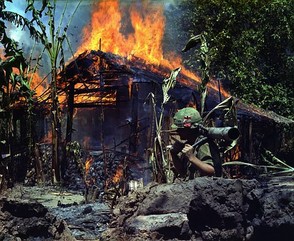


 Icelandic Financial Upturn 2011 - 2017on 12/18/2017
Icelandic Financial Upturn 2011 - 2017on 12/18/2017
 An Arizona Man's Wizzography - Few Regretson 02/10/2012
An Arizona Man's Wizzography - Few Regretson 02/10/2012
 A Proposal for a Third Party Candidate for President of the United Stateson 11/30/2011
A Proposal for a Third Party Candidate for President of the United Stateson 11/30/2011



Comments
This comment was meant for a one time entry. I have no idea why it didn't?
God bless those who selflessly served, not unlike today. Youngsters may laugh at oldsters, but they will rue the day..
God bless those who selflessly served, not unlike today. Youngsters may laugh at oldsters, but they will rue the day..
God bless those who selflessly served, not unlike today. Youngsters may laugh at oldsters, but they will rue the day..
God bless those who selflessly served, not unlike today. Youngsters may laugh at oldsters, but they will rue the day..